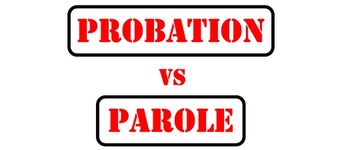Difference Between Probation and Parole
Probation and Parole are two different types of supervision.
Parole
Parole is a form of release granted by the Parole Board of Canada that allows offenders serving sentence in Provincial or Federal custody to serve a portion of their sentence in the community.
Parole is granted by the Parole Board of Canada (PBC). The PBC is not required to review your case if you are serving a sentence of less than six months. This may be why so many people in Provincial jails are not given parole.
The PBC has the authority to grant or deny parole and they do this on a case-by-case basis.
The Parole Board of Canada reviews offenders files and assessing their release plan taking into account the offender’s:
- Criminal history
- Threat to public safety
- A host of other factors
If parole is granted, the offender is assigned a community Parole Officer.
The Parole Officer will assist the offender with the transition into the community.
The offender will be on parole until the sentence is completed (until their Warrant Expiry Date).
Probation
Probation is handed down by the court and allows the offender to be supervised in the community for a specified length of time.
Parole is tied to a prison sentence, but a Judge can order only probation for an individual (or order an individual to serve jail time and probation after the jail time is completed).
For instance, a Judge can order an individual be given probation and not a jail sentence.
A Court Judge makes the decision regarding probation, not the Parole Board of Canada.
The Parole Board of Canada can review many factors, including:
- Correctional plan
- Support letters
- Behaviour within the institution
- Correction programs taken
Whereas a Judge will usually ask for a pre-sentence report and decide based on the offence committed.

